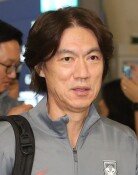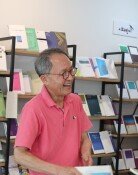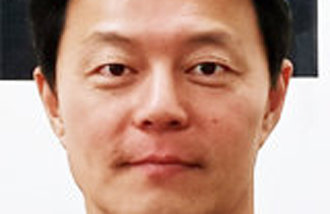A world apart ‘venue premium’ of Camp David
A world apart ‘venue premium’ of Camp David
Posted August. 16, 2023 08:08,
Updated August. 16, 2023 08:08
Even in the United States, where I am staying for vacation, I often hear reports of the Korea-US-Japan summit at Camp David, which will be held on the 18th of this week. The meaning of Camp David, which I passed by from a distance when I was a Washington correspondent, is unique even in the United States. It's different from the Korean version of Cheongnamdae, where the presidents used to spend their vacations. Another name for this place, which is 30 minutes away by helicopter from the White House, is a secluded presidential retreat, that is, the president's secret retreat. Unlike the Oval Office of the White House, it is a space for healing and contemplation. The White House has tour programs for tourists and people can take pictures outside, but Camp David is a facility heavily guarded by the Marine Corps, so public access is prohibited.
Many former U.S. presidents enjoyed visiting this location as well. President Joe Biden held a family gathering, directed the Afghan withdrawal, and celebrated the victory of the hockey team of Ireland, which is his ancestral root. He has officially been to the retreat eight times this year alone. His predecessor Trump threw a party for his daughter Ivanka's 10th wedding anniversary. Many diplomatic conversations, such as the "Camp David Accords" that mediated Egypt and Israel during Jimmy Carter's time, were possible thanks to the special value that the place carries.
President Yoon Suk Yeol is scheduled to visit this very place. It will be the first Korean president in 15 years since Lee Myung-bak, who rode a golf cart with George W. Bush in 2008. It is the first visit by a foreign head of state in the Biden administration. Due to such a peculiar nature, great interest is being garnered as to what discussions might take place. Summarizing the hearsay of diplomatic sources, except for the three countries participating in the talks, China is showing the greatest interest. This is because Biden opened Camp David to establish a trilateral forum for Korea, the U.S., and Japan to keep China in check.
No matter how uncomfortable President Yoon is with China, it is an entirely different matter to formalize the Taiwan issue, which Beijing considers the most sensitive, in the form of a written agreement following the Korea-US-Japan summit. Perhaps recognizing these sensitivities, a presidential office official also drew a line in a pre-briefing, saying, "(The resulting statement) will not include expressions such as that Korea, the U.S., and Japan are hostile to China, or that they are (cooperating) in this fashion because of China."
However, we remember that several recent summits have gone awry, slightly missing South Korea's expectations. This is because the actual outcome of the summit cannot be 100% accurate with what was prepared, rather than a problem that occurred due to someone's mistake.
Diplomatic experts believe that President Yoon, who will meet with the heads of the US and Japan in a special space called Camp David, may still be under strong pressure on issues related to China and Taiwan. Japan's Prime Minister Fumio Kishida will sympathize with the United States, to say the least, on the Chinese issue to gain Biden's support before releasing contaminated water in Fukushima. Under these circumstances, this meeting will serve as an opportunity for Korea to be recognized as a key country in the Western camp, and it will pose a challenge to decide whether to engage more deeply in U.S.-led sanctions against China. Hopefully, President Yoon will bear in mind the meaning of his visit to Camp David before attending the talks.







